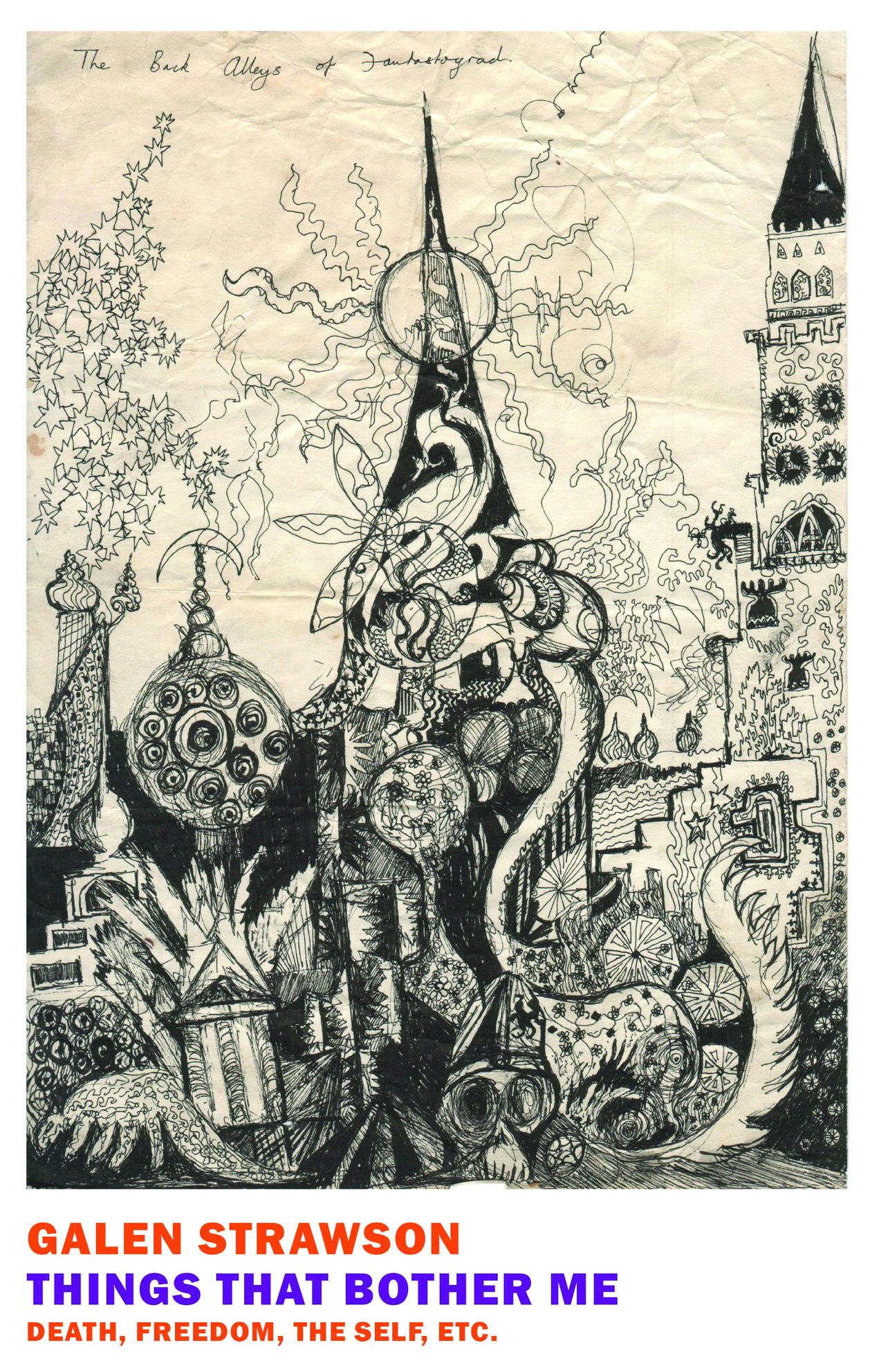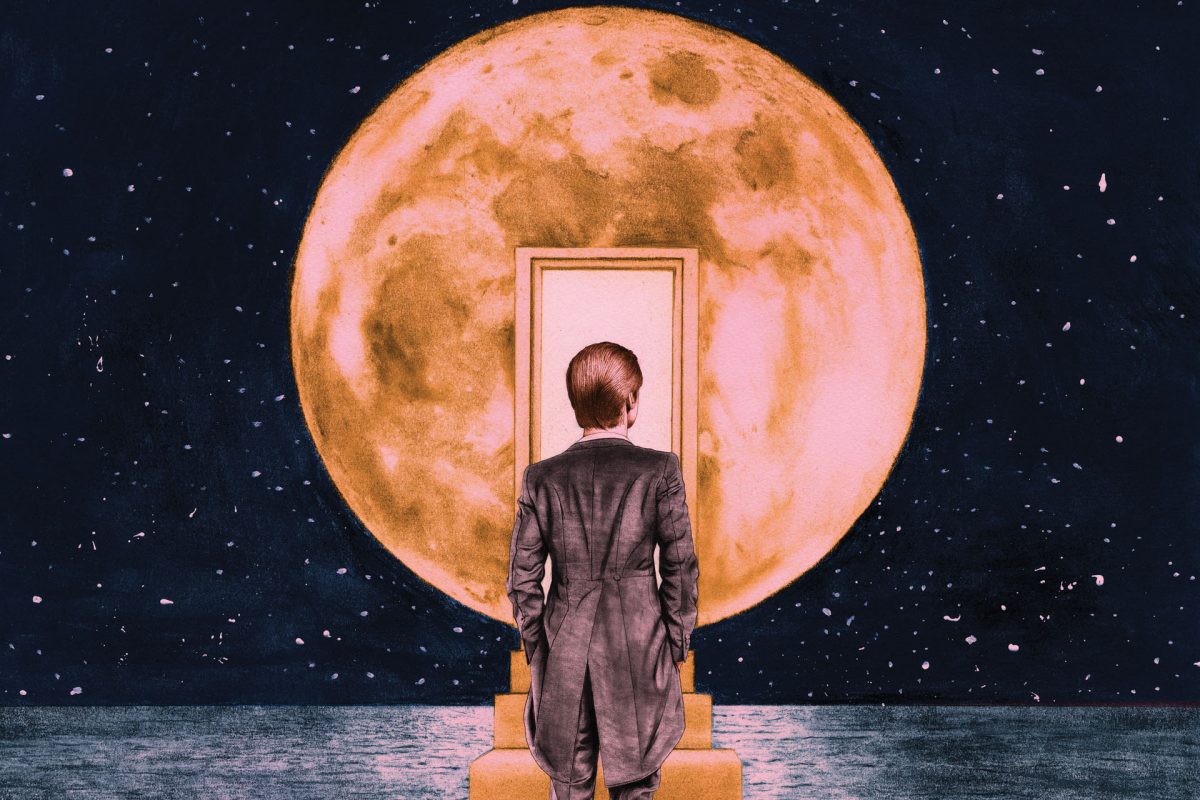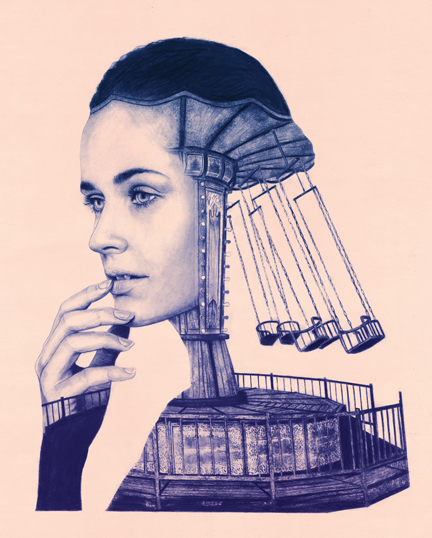Writer and actor Stephen Fry says Galen Strawson “opens windows and finds light-switches like no other philosopher writing today,” and novelist Ian McEwan simply dubs Strawson “one of the cleverest men alive.” High praise for this UT professor of philosophy, who discusses his latest book, Things That Bother Me: Death, Freedom, The Self, Etc. with Life & Letters editor Michelle Bryant.
How did you come up with the title?
I came up with it as soon as I was asked for a title, without reflection, and sent it to Edwin (Edwin Frank, editor of the New York Review of Books) half as a joke, although it was an accurate description of the contents of the book.
What do you hope the readers will take away from your new book?
If one is a philosopher, one can easily find oneself spending most of one’s time trying to correct false views. Some of them are wildly false. I think it’s worthwhile to let people know that some philosophers were mad enough to deny the existence of consciousness (This is the subject of Chapter 6, “The Silliest Claim”). Sometimes philosophy is a bit like public life, in which “falsehood flies, and truth comes limping after it, so that when men come to be undeceived, it is too late; the jest is over, and the tale hath had its effect” (as Jonathan Swift wrote in 1710).
I think it’s also particularly worthwhile to put the case against the “narrativist” orthodoxy, the view that we all live our lives in a narrative fashion and ought to do so (the subject of Chapters 2 and 8, “A Fallacy of Our Age” and “The Unstoried Life”). It’s just not true that everyone is like this. It’s not true that everyone ought to live like this, and I think it’s helpful to point out that there are other good ways to live.
If you wrote the first essay in 1995 and the last in 2016, do you still agree with your past work? Are there beliefs that you have written about that have shifted or strengthened over time?
Here you’re picking up on something I talk about in the book — the fact that when I think about myself as I am now, I don’t feel any strong connection to my own past, although I am of course perfectly well aware that Galen Strawson, “GS,” the biological human being that I am, has a past. On the whole, my views have changed very little if at all. The only change that I can think of is something that I touch on only very briefly in the book (pages 169–173). It will seem crazy to some people, but I may as well report it here.
“I’m a full-on materialist or physicalist, someone who thinks that everything in the universe is wholly physical. But I also know that consciousness — color experience, emotional feeling, pain, and so on — is real, because nothing in life is more obvious or more certain.”
Galen Strawson
I’m a full-on materialist or physicalist, someone who thinks that everything in the universe is wholly physical. But I also know that consciousness — color experience, emotional feeling, pain, and so on — is real, because nothing in life is more obvious or more certain. I conclude, as I must, that consciousness, consciousness in all its stereo technicolor magnificence, is a wholly physical phenomenon. And that greatly deepens my intuitive understanding of something I already know intellectually: the fact that physics, for all its glory, can’t tell us much about the ultimate intrinsic nature of the stuff of the universe. In fact, it leads me to suspect that consciousness is — must be — among the fundamental properties of physical stuff.
Now for the change of view. I used to think, with the rest of the world, that physical substance, physical stuff, mass–energy, had to have some sort of entirely nonconscious aspect or being, in order to count as physical at all, even if it also had some sort of fundamental and irreducible conscious aspect. I no longer think that this is obvious. And certainly physics doesn’t support the view that physical stuff must have some entirely nonconscious aspect.
Some people will dismiss this as New Age piffle. Actually it’s genuinely hard-nosed physicalism. It’s what hard-nosed physicalism looks like when it really faces up to the evidence, the basic data — which includes all the phenomena of consciousness. “Outright physicalism,” as I say in the book, “is compatible with ‘panpsychism.’”
My favorite essay was “Luck Swallows Everything.” Even if we are not free agents, do you think it’s important for us to hold on to the belief that we are responsible, and if so, why?
Yes, I think it’s very important for us to hold on to the belief that we’re fully responsible for our actions, and I would worry if I thought that this is a belief we could easily lose. I don’t suppose Einstein lost his sense of being a responsible agent, even when he wrote, in a passage I quote in Things That Bother Me, that “if the moon, in the act of completing its eternal way around the earth, were gifted with self-consciousness, it would feel thoroughly convinced that it was traveling its way of its own accord on the strength of a resolution taken once and for all. … So would a Being, endowed with higher insight and more perfect intelligence, watching man and his doings, smile about man’s illusion that he was acting according to his own free will.”
If we don’t have free will, what is within our control?
Well, we’re free agents inasmuch as we’re often in a position to do what we want to do or think it right or best to do, and there’s a leading sense of “control” according to which our control of our actions is undiminished in the absence of radical free will. I’m inclined to quote Einstein again: “Schopenhauer’s saying, that ‘a man can do as he will, but not will as he will,’ has been an inspiration to me since my youth up, and a continual consolation and unfailing well-spring of patience in the face of the hardships of life, my own and others’. This feeling mercifully mitigates the sense of responsibility which so easily becomes paralysing, and it prevents us from taking ourselves and other people too seriously; it conduces to a view of life in which humour, above all, has its due place.”

Things That Bother Me: Death, Freedom, The Self, Etc.
New York Review Books, March 2018
By Galen Strawson, professor, Department of Philosophy


